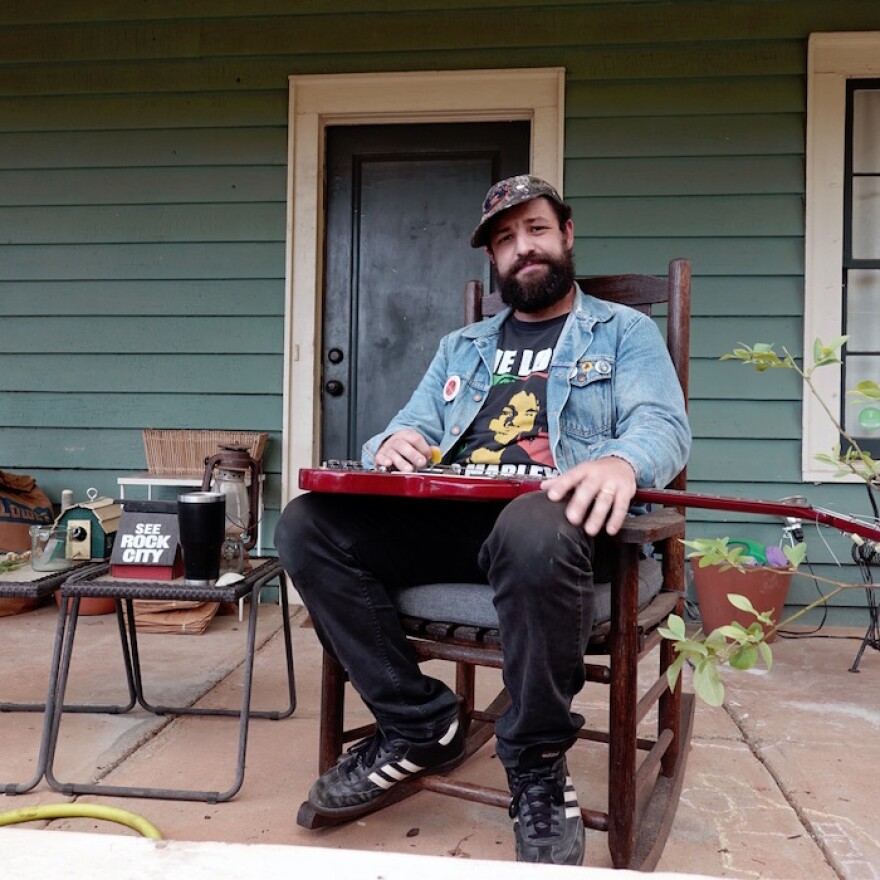Lee Bains: I grew up hearing a lot about the place where I lived from older people. My grandparents would all sit in the living room, and I just wanted to sit with them and hear them talk and tell stories. Because they would be talking about places that I was intimately familiar with, you know, but they were sort of like imbuing these places with memories and images that weren't familiar to me.
[music]
LB: The first time I ever sang was with the granddaddy that I'm talking about and my grandmama, his wife, and their church. She was a choir director, and that was a very early moment in my life, where–I was probably like four or five–where I felt my soul, you know what I mean? And I mean, the other thing I was going to say, which is probably the most central, is that growing up, my babysitter is part of this, you know, Black Holiness Pentecostal tradition. So, you know, from a very young age, I was going to church with her and riding around and listening, you know, to her music. And then when I got older and started playing guitar, you know, I started playing guitar in their church. At their church in particular, there's such a wide breadth of gospel that they participate in. So, in a really positive way, I got to see all these different ways of making contact with the spirit.
Nick Spitzer: You've said that you're a Christian, and you're a believer, and you follow the bible, but also you cannot help but be conflicted by what humans have made religion out to be. I mean, certainly that suits your social concerns.
LB: Yes, very much. And there wasn't a time in my life where I wasn't aware of these different strands of Protestant Christianity, you know, and where I wasn't also aware that basically, for the most part, each of them was saying that the other ones were doing it wrong. And the thing is like, I knew these people personally, and I knew their communities, and I knew that at least on their best days and their best moments, what they were trying to do is connect with something greater than themselves and to be of service to the people around them. And it just didn't make sense that, because of a technicality, one of them was going to hell and the other one wasn’t, and who knows which one it is. You know what I mean? That just didn't make sense. And I don't–you know, the deeper I get into it and studying the Bible and listening to people's different concerns, like I just don't see where the Bible says that anywhere.
[music]
Join Nick Spitzer talking about 25 years of American Routes radio 10:00 AM Saturday, March 10th at the New Orleans Book Festival. For more information, go to bookfest.tulane.edu. To hear the full program, tune in Saturdays at 5 and Sundays at 6 on WWNO, or listen at americanroutes.org.



